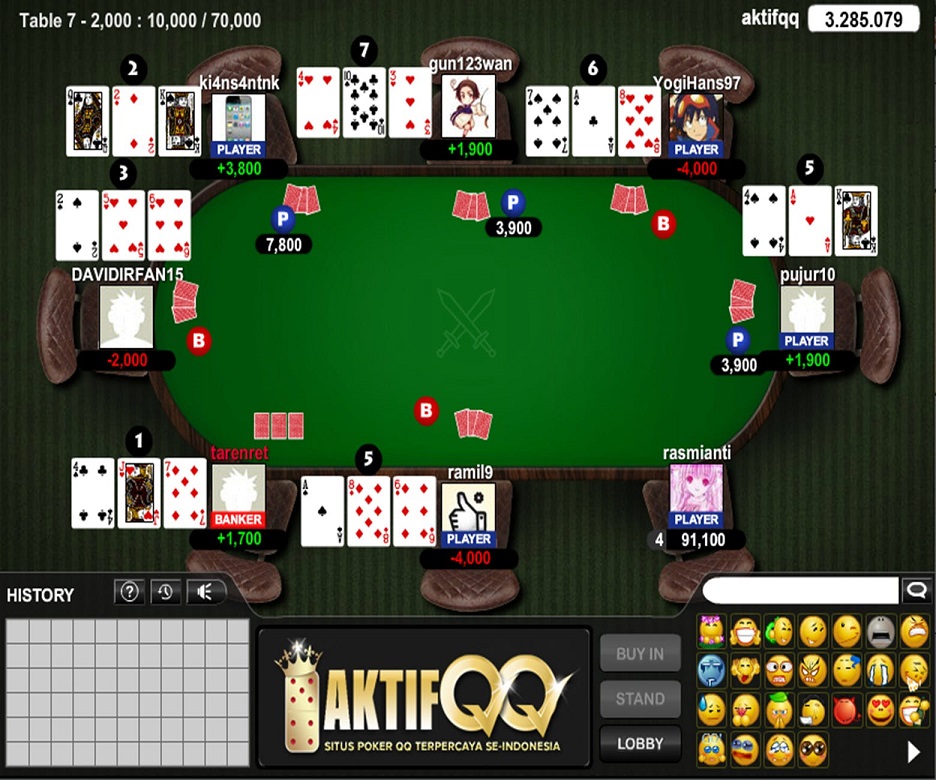Thinking of going pro? Take your online poker game to the next level
The advent of online poker has made all sorts of things possible within the industry, not least the potential to start a professional poker playing career. Although playing online poker for a living seems to be more accessible than carving out a career trajectory playing traditional live cash games, it’s actually much more difficult than you might think.
If becoming a pro online player didn’t take as much work as becoming a pro live player, we’d all be making a living from playing the game online! Being an online poker pro is a rewarding career path for anyone who loves the game, but it will take a lot of hard work and effort before you can build things up to the point where you can quit your 9 to 5 and make poker your main source of income.
To help you on your way, here are some quick tips that will take your game to the next level.
Develop your soft skills
Ok, so maybe you eat, sleep, and drink poker, but if you’re not developing your soft skills as much as you are your poker skills, you really aren’t doing yourself any favours. We've all heard the stories about how cash game players have fallen prey to the dreaded tilt, lost concentration during a game and lost a big pot, and made rash, emotional decisions, but the same things can happen to online players too.
Taking care of your mindset and mental health is the first step on the ladder to going pro.
Self-care has to become a priority, especially because you’ll be playing alone online so may not have the support of peers and fellow players around you. Eat well, stay hydrated, get plenty of sleep and daily exercise, mentally prepare yourself for your online games and tournaments, and most importantly understand when it’s time to quit the game, log off, and pick things up again another day.
Study the game
You may be winning today, but if you don’t continue studying and learning, you may not be winning tomorrow. Because it’s their livelihood, pro players - both online and offline - invest time and effort into keeping their skills sharp.
The sheer volume of resources that are available online mean it should be easy to start finetuning the weaknesses and holes in your game. If you’re not so comfortable with certain hands, research them. If you want to take your game to a new level, swot up on Game Theory Optimal strategies. Observe other online players (come on, there’s thousands of hours’ worth of Twitch poker streaming to dive into). Sign up with a training site, or work one to one with a coach...Just keep on learning.

Keep studying the game
Yep, when you think you’ve learned all there is to know about poker guess what? That’s right, you need to start researching and studying all over again. Standing still in poker means that you will eventually be left behind, so keep analysing your game for slow and weak points.
Switch things up with the variants you play too, learning a new variant can freshen things up and give you a much needed break from your regular game if you’re heading into tilt territory. If you're used to playing Texas Hold 'em, practice playing Omaha and vice versa. Keep an eye out for play money tournament schedules available on platforms like PokerStars. These competitions are free to enter and play, so they make the ideal arena for trying out a new approach.
Set realistic goals
GOALS that is, not Dreams. Sure, dreaming of winning the WSOP after qualifying online is a good one to have, but it’s the goals you set now that will get you there. Turning pro is not just about the luxury of playing all day every day, you are going to have to support yourself with either a full time or part time equivalent wage.
The common advice for turning pro is to win the equivalent of two months’ wages, but you’re really going to set yourself up to fail if you leave a secure, regularly-paying job on what could actually be just a rare good run. Essentially, you’re going to have to calculate just how many games or tournaments you’ll need to play in order to match your current monthly income, factoring in things like the amount of time you’re willing to grind for every week, and “holiday” or “sick leave” pay (everyone needs some sort of holiday from work, and everyone gets sick).
A note on bankroll
Always remember, the money you earn from playing poker isn’t just going to support you in daily life, you also need to be playing and winning enough to build up a bankroll. Your poker bankroll should be - and needs to stay - separate from your pot to cover everyday expenses, and since it would be in your worst interest to drop down in stakes, you will need a higher bankroll playing pro than you would recreationally.

